Common Pet Health Problems and How to Prevent Them
Learn about the most common pet health problems in dogs and cats, their early warning signs, and proven ways to prevent them with vet-approved care tips and preventive pet health routines.
10/23/20254 min read



🩺 Introduction: Why Pet Health Awareness Matters
As pet owners, we all want our furry friends to live long, happy, and healthy lives. However, pets—just like humans—can experience a variety of health issues throughout their lives. The key to keeping them healthy lies in early detection, preventive care, and regular vet checkups.
Understanding common pet health problems not only helps you act quickly when something seems off but also prevents minor issues from turning into serious conditions.
In this guide, we’ll explore:
The most common pet diseases and their symptoms.
Preventive pet care tips to avoid illnesses.
Vet-approved daily routines for maintaining your pet’s overall wellness.
🐕🦺 1. Obesity in Pets
⚠️ Why It Happens
Pet obesity has become one of the most widespread health problems, especially among dogs and indoor cats. It’s often caused by overfeeding, lack of exercise, or feeding human food that’s high in calories and fats.
🧠 Signs to Watch For
Noticeable weight gain or difficulty moving
Shortness of breath or fatigue
Trouble jumping or climbing stairs
🩹 Prevention Tips
Feed a balanced diet with proper portion control.
Limit treats — they should make up less than 10% of daily calories.
Ensure at least 30 minutes of exercise per day for dogs and interactive playtime for cats.
Consult your vet about the ideal weight for your pet’s breed and age.
SEO Keywords: pet obesity prevention, pet diet tips, healthy pet weight, overweight dogs, overweight cats
🐾 2. Dental Disease
⚠️ Why It Happens
Plaque and tartar buildup can lead to gum disease, tooth decay, and bad breath, which are more serious than many pet owners realize. Dental disease can even affect internal organs over time.
🧠 Signs to Watch For
Foul-smelling breath
Difficulty eating or chewing
Red or bleeding gums
Excessive drooling
🩹 Prevention Tips
Brush your pet’s teeth at least 2–3 times a week using pet-safe toothpaste.
Offer dental chews and toys to reduce plaque.
Schedule annual dental cleanings with your vet.
SEO Keywords: pet dental care, dog teeth cleaning, cat dental disease, prevent bad breath in pets, pet oral hygiene
🐈 3. Fleas, Ticks, and Parasites
⚠️ Why It Happens
Parasites are more than just an itchy nuisance — they can transmit serious diseases like Lyme disease, tapeworms, or anemia in pets.
🧠 Signs to Watch For
Constant scratching or biting skin
Visible fleas or flea dirt
Hair loss or scabs
Lethargy (in case of internal parasites)
🩹 Prevention Tips
Use vet-recommended flea and tick preventives year-round.
Wash your pet’s bedding regularly.
Keep your lawn trimmed to reduce tick exposure.
Conduct monthly parasite checks.
SEO Keywords: flea and tick prevention, parasite protection for pets, pet grooming tips, how to remove fleas from dogs
🐶 4. Skin Allergies and Irritations
⚠️ Why It Happens
Pets can develop allergies to food, pollen, dust, or even flea bites. Skin problems are among the most common vet visits.
🧠 Signs to Watch For
Constant licking or scratching
Red, flaky, or irritated skin
Hair loss or scabs
Ear infections (common with food allergies)
🩹 Prevention Tips
Feed high-quality, hypoallergenic food if allergies are suspected.
Bathe your pet using mild, vet-approved shampoos.
Regularly vacuum and clean living areas.
Consult your vet for allergy testing if symptoms persist.
SEO Keywords: pet skin allergies, itchy dog skin treatment, cat allergy prevention, best pet shampoos for sensitive skin
🧬 5. Ear Infections
⚠️ Why It Happens
Ear infections are particularly common in dogs with floppy ears or pets that swim often. They can result from trapped moisture, bacteria, or allergies.
🧠 Signs to Watch For
Head shaking or pawing at ears
Foul odor from ears
Redness or swelling inside the ear
Discharge or wax buildup
🩹 Prevention Tips
Clean ears weekly with a vet-approved ear cleaner.
Keep ears dry after swimming or baths.
Trim excess hair around ears for better airflow.
SEO Keywords: dog ear infection treatment, prevent pet ear infections, pet ear cleaning tips
🫀 6. Heartworm Disease
⚠️ Why It Happens
Heartworm is transmitted through mosquito bites and can be life-threatening if untreated. It affects both dogs and cats.
🧠 Signs to Watch For
Persistent cough
Fatigue or difficulty breathing
Weight loss or reduced appetite
🩹 Prevention Tips
Administer monthly heartworm prevention medication.
Have your vet perform annual heartworm tests.
Keep pets indoors during peak mosquito seasons when possible.
SEO Keywords: heartworm prevention, dog heartworm medicine, mosquito protection for pets, heartworm symptoms
🧠 7. Digestive Problems
⚠️ Why It Happens
Pets may experience vomiting, diarrhea, or constipation due to dietary changes, spoiled food, or stress.
🧠 Signs to Watch For
Changes in appetite
Lethargy
Bloating or discomfort after eating
🩹 Prevention Tips
Maintain a consistent diet — avoid sudden food changes.
Ensure fresh, clean water is always available.
Avoid giving human food that’s toxic to pets (like chocolate, onions, or grapes).
SEO Keywords: pet digestive health, prevent pet vomiting, dog upset stomach, cat diarrhea remedies
💉 The Power of Preventive Pet Care
Regular veterinary checkups are the foundation of your pet’s long-term wellness. Routine health exams allow early detection of potential problems and help you stay up to date on:
Vaccinations
Parasite control
Dental cleanings
Diet and weight monitoring
SEO Keywords: preventive pet care, vet checkup schedule, pet vaccination guide, pet health routine
❤️ Final Thoughts
Your pet depends on you for their health and happiness. By staying informed about common pet health problems and practicing preventive care, you can ensure your furry companion enjoys a long, energetic, and joyful life.
Remember — a healthy pet is a happy pet. 🐾




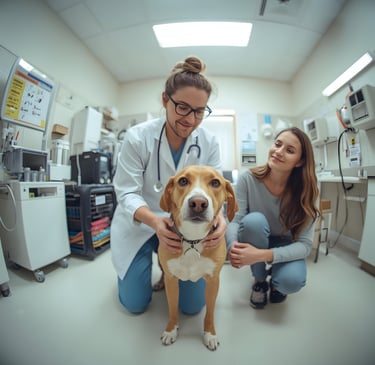



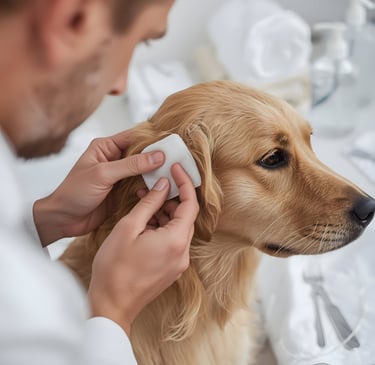

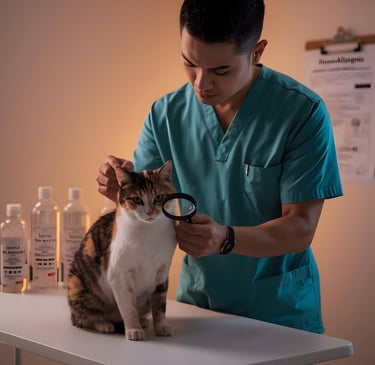

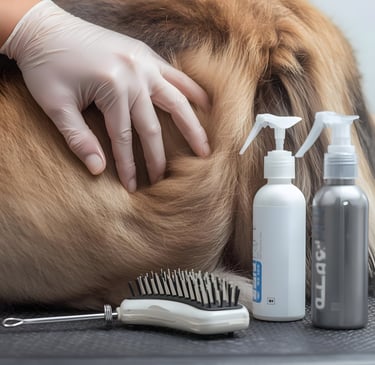

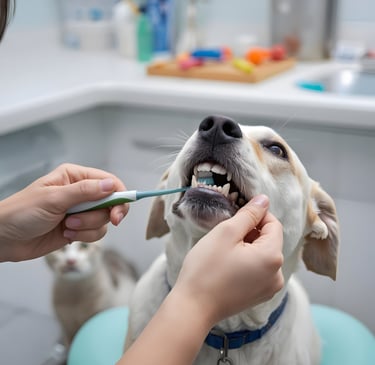




Connect
Join our community of passionate pet lovers.
Explore
Subscribe
itsalinasir@gmail.com
+92-329-302-9047
© 2025. All rights reserved.
